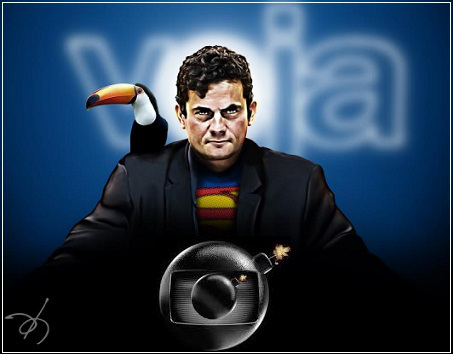The amount of programs on Brazilian TV in which soccer is the one single subject discussed is unbelievable!
Besides the live broadcasts of a considerable amount of matches (played here or abroad), there is a profusion of shows where former athletes, journalists, commentators and some sort of "sporting pundits" talk (a lot) and (often) argue about the game, as if it was the most important stuff in the whole world.
It's not easy to find good information about other sports on local traditional media. People who loathe soccer, like me (but love basketball, volleyball, tennis, judo, skateboarding...), usually have a hard time watching Brazilian channels - even on pay-TV.
And why are there so many interviews with soccer players? I frankly can not see what is their point. What are those conversations for? Don't get me wrong, pal. I'm not saying that all soccer players are complete morons (even though some of them, definitely, are); I'm complaining because those interviews are repetitive, full of commonplaces and obviousness. Most of the players sound the same when they are talking!
Youtuber Lilly Singh made a hilarious video that may be kind of helpful now, I think. She is mocking interviews with athletes in general, in the North American context, but it's pretty similar to Brazil and its soccer players. Check it out:
As she said, at the moment of the interview, "every player literally turns into Captain Obvious and says nothing of value". But I agree with her: Athletes have other fantastic skills and "not everyone can be a great speaker and take great shots".
Before I forget: TV reporters also could improve their questions, couldn't they?
Youtuber Lilly Singh made a hilarious video that may be kind of helpful now, I think. She is mocking interviews with athletes in general, in the North American context, but it's pretty similar to Brazil and its soccer players. Check it out:
As she said, at the moment of the interview, "every player literally turns into Captain Obvious and says nothing of value". But I agree with her: Athletes have other fantastic skills and "not everyone can be a great speaker and take great shots".
Before I forget: TV reporters also could improve their questions, couldn't they?

















